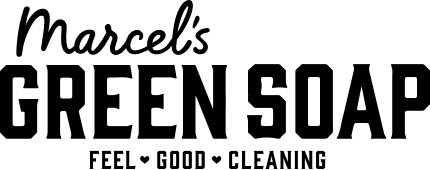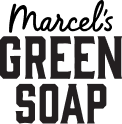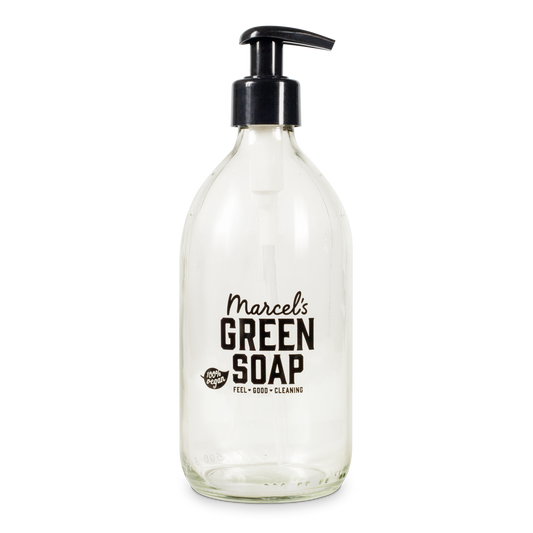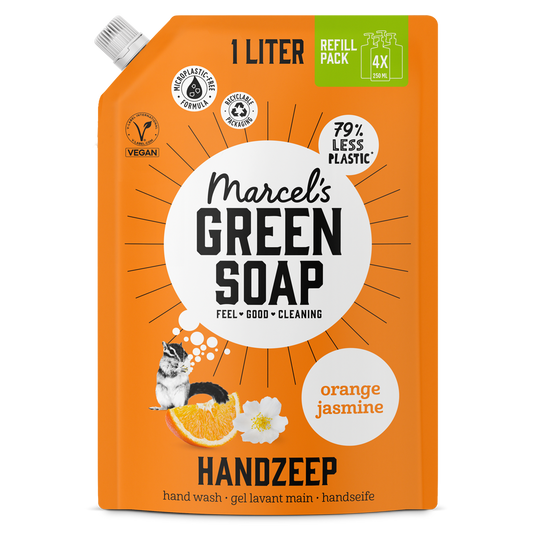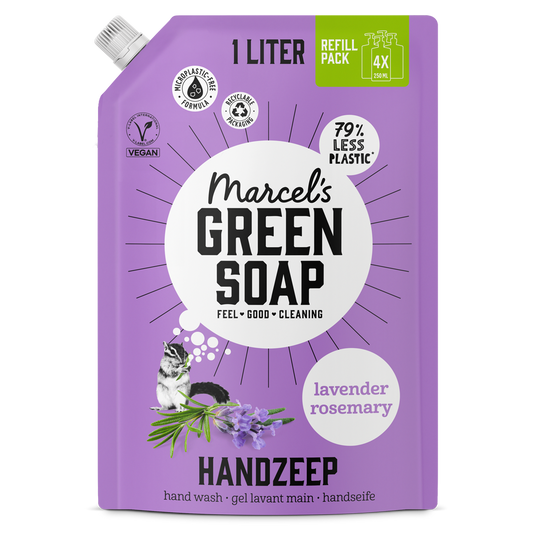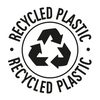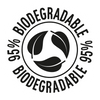Marcel Belt was named Changemaker of the Week by Change Inc. in June 2021. Read the interview below.
With Green Soap Company, Marcel Belt shows that the soap industry can be greener. He talks about his motivation and how he's inspiring major players like Albert Heijn and Unilever to follow his example.
Belt (57) is well-versed in laundry, cleaning, and personal care products. As a single parent of three daughters, Belt started his own business in 2016 to spend more time with his children. With The Green Soap Company, he offers a sustainable alternative to soap, laundry, and cleaning products.
With Green Soap Company, Marcel Belt shows that the soap industry can be greener. He talks about his motivation and how he's inspiring major players like Albert Heijn and Unilever to follow his example.
Belt (57) is well-versed in laundry, cleaning, and personal care products. As a single parent of three daughters, Belt started his own business in 2016 to spend more time with his children. With The Green Soap Company, he offers a sustainable alternative to soap, laundry, and cleaning products.
Vision
By introducing sustainable detergents and cleaning products, I want to make the world a little better and cleaner. Because soap products have a significant impact on the environment. In the Netherlands alone, 8 million empty soap bottles are thrown away every week. These are usually bottles made of virgin plastic, which means new petroleum has been used. In addition, 4 to 5 million liters of detergent, hand soap, and shampoo are flushed down sinks and shower drains every week in the Netherlands. This contains a lot of harmful substances like acids, ammonia, and chlorine.
Our mission is to green the entire soap industry. That all detergents, cleaning products, and personal care products are green. It should be a prerequisite for bringing these kinds of products to market. This involves how they're produced, what they're made of, and the effects of using them. This applies to the packaging and the contents. That won't happen overnight. We call our products light green. We always try to find the greenest alternative.
“We want to make an impact with our idea.”
Our mission is to green the entire soap industry. That all detergents, cleaning products, and personal care products are green. It should be a prerequisite for bringing these kinds of products to market. This involves how they're produced, what they're made of, and the effects of using them. This applies to the packaging and the contents. That won't happen overnight. We call our products light green. We always try to find the greenest alternative.
“We want to make an impact with our idea.”
Leadership
I want to show that things can be done differently. Lead by example. And by doing so, inspire Albert Heijn stores, Unilever, intermediaries, and consumers to actually do things differently. For example, a tremendous amount of palm oil is used in laundry detergents, and palm trees only grow in areas where rainforest also happens to be present. So that has to change. We've now developed a palm oil-free laundry detergent that will be launched this fall.
I had set aside some money for my own future. I used it to make my children's future brighter. My financial resources are limited, so I can't build my own factory. So we work a lot with external parties. Suppliers like to work with us because we give them a platform for their innovation or sustainable product. Through us, they can prove that it works in the market, which allows them to reach larger buyers.
Belt uses recycled plastic for all of Green Soap's bottles. "It's made from the waste Suez and AVR collect from households. None of the major players dared to use it. We took the risk of blowing those first 40,000 bottles and seeing how they would perform in the market. That's what sets us apart from companies like Unilever and Albert Heijn. Because every innovation has to go through half a dozen counters there. Then it quickly becomes too expensive or too risky."
"The Green Soap Company currently has 12 people working for it, all of whom can do things I can't. Because only then will we become more creative and make an impact faster. And they have to be willing to make mistakes. Because then we're taking risks and innovating. If we stop making mistakes, something is wrong; we're not innovating fast enough."
I had set aside some money for my own future. I used it to make my children's future brighter. My financial resources are limited, so I can't build my own factory. So we work a lot with external parties. Suppliers like to work with us because we give them a platform for their innovation or sustainable product. Through us, they can prove that it works in the market, which allows them to reach larger buyers.
Belt uses recycled plastic for all of Green Soap's bottles. "It's made from the waste Suez and AVR collect from households. None of the major players dared to use it. We took the risk of blowing those first 40,000 bottles and seeing how they would perform in the market. That's what sets us apart from companies like Unilever and Albert Heijn. Because every innovation has to go through half a dozen counters there. Then it quickly becomes too expensive or too risky."
"The Green Soap Company currently has 12 people working for it, all of whom can do things I can't. Because only then will we become more creative and make an impact faster. And they have to be willing to make mistakes. Because then we're taking risks and innovating. If we stop making mistakes, something is wrong; we're not innovating fast enough."
Impact
Since its founding in 2016, Marcel's Green Soap has experienced rapid growth. “In the first year, I sold €70,000 worth of soap. I never imagined that. Since then, we've gone bankrupt two or three times every year. This year, I expect a turnover of €10 million. And we're already making a profit, which I invest in advertising. However, our ambition isn't to sell the most products. We're aiming for thought leadership, not market leadership. We want to make an impact with our ideas.”
We call our business model open source: we're in constant discussions with Unilever and Albert Heijn. We're happy to share information with competitors because our mission is to convert everyone. I want 100 percent of the cleaning products market to sustainable. Not by achieving 100 percent market share ourselves, but by everyone following us and doing what we do. For example, Unilever now has the Love Beauty Planet brand, which uses 100 percent recycled plastic. I demonstrated that four years ago; I hope they've copied me a little.
We don't claim to be launching the most sustainable product right away. We can't. But as soon as we see opportunities to make things more sustainable, we'll seize them immediately. This also suits today's consumers. Only 5 to 8 percent of consumers are dark green. They relate all their choices to sustainability. The majority of consumers are light green. They cycle as much as possible, but still get in the car when it's raining heavily. We want to gradually guide these consumers towards a dark green product. And if you make sustainability attractive, interesting, and appealing, you'll automatically win over consumers. Then 'going green' is no longer a sacrifice. It's something you benefit from as well.
By introducing sustainable laundry and cleaning products, I want to make the world a little better and cleaner. Because soap products have a significant impact on the environment. In the Netherlands alone, 8 million empty soap bottles are thrown away every week. These are usually bottles made of virgin plastic, which means new petroleum has been used. In addition, 4 to 5 million liters of laundry detergent, hand soap, and shampoo are flushed down sinks and shower drains every week in the Netherlands. This must and can change.
